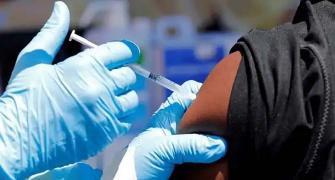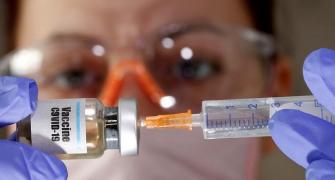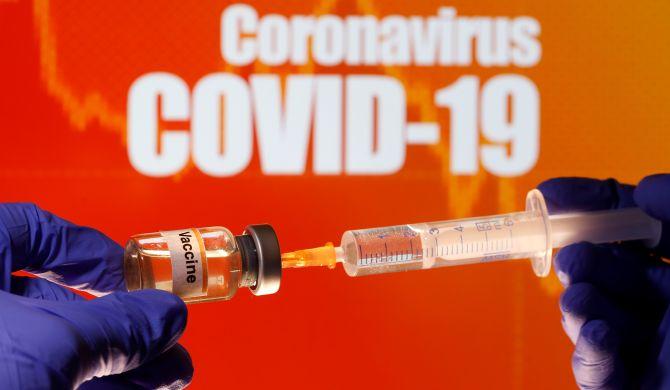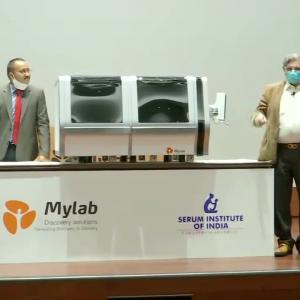Siemens Healthineers, one of the largest manufacturers of made-in-India CT scanners, has sold 80-100 such machines in the last 45 days. The medical technology firm typically sells 250 machines in a year.

The pandemic has pushed up the demand for computerised tomography scan (CT scan) machines, which are now being increasingly used as an early tool to differentiate the Covid-19 pneumonia from others.
Almost every hospitalised Covid patient needs a CT scan, which uses computers and rotating X-ray machines to create cross-sectional images of the body, at some point to monitor the progression of the disease.
Siemens Healthineers, one of the largest manufacturers of made-in-India CT scanners, has sold 80-100 such machines in the last 45 days.
The medical technology firm typically sells 250 machines in a year.
Explaining the trend, Vivek Kanade, executive vice-president (India zone), Siemens Healthineers, says the surge in the demand for CT scanners started when clinicians realised that Covid-induced pneumonia was seen in almost everyone, even in aysmptomatic patients.
"We have developed an AI-based algorithm that would take a look at the scan and calculate the pneumonia score, which would determine how you manage the patient.
"This is called the pneumonia index, or something to measure the severity of the pneumonia.
"We have added this plug-in in all our installations across the country," he says.
Bishnu Panigrahi, group head (medical strategies and operations), Fortis Healthcare, says that when a patient comes to the casualty department with a breathing trouble, CT scan is a clear differentiator.
"The Covid-19 CT scan has something called ground-glass opacity.
"We know immediately that this patient needs to be isolated even before the confirmatory RT-PCR report comes, thus preventing a lot of collateral damage,” Panigrahi says, adding that Fortis had bought CT machines during the pandemic.
The kind of treatment a patient would get, he says, was determined by the CT score.
Doctors, however, seem divided on this. Satyanarayana Mysore, head of the Department of Interventional Pulmonology, Manipal Hospitals, says one could not always depend on the CT score.
"We have seen patients with a high CT score do well, while someone with a lower score being put on oxygen," Mysore says.
While CT scan is an extremely useful tool, he says, to understand the progression of the disease and the damage done, it is not a substitute for a diagnostic tool like the RT-PCR test.
Shravan Subramanyam, managing director, Wipro GE Healthcare, South Asia, predicts that the increased demand for CT scan machines would not be just limited to the pandemic.
There is likely to be a surge in demand for CT machines for treating non-communicable diseases after the pandemic, as many have deferred their treatment due to fear.
Wipro GE Healthcare has seen a 300-400 per cent increase in the production of mobile X-ray machines at its Bengaluru site.
Of the new CT installations (16-slice CT is used mainly for Covid-19 management), 60-70 per cent are in new sites where CT services did not exist.
“We are also seeing increasing demand from tier II towns," he adds.
Siemens, too, is gearing up for this demand surge.
The usual replacement cycle of a CT machine is 7-10 years.
Kanade says a lot of smaller nursing homes and hospitals are now buying CT machines as they realise that each Covid-19 patient would need them at least once during hospital stay.
For Siemens, around 50 per cent are first-time buyers, 30 per cent are adding machines for Covid-19 and 15-20 per cent constitute those seeking replacement.
The firm makes a cheaper model in India, costing ~1.2-1.8 crore and imports the high-end ones.
In the next two quarters, Kanade says, the firm expects a 30-40 per cent jump in demand.
"We have prepared for that. We have engaged actively with our vendors to supply quickly. Usually, we take the sea route, which takes four weeks.
"Now, we are straightaway airlifting the components," Kanade says.
The company has also added a remote-use feature so that the technician can sit in another part of the building and not inside the CT scan room to operate the machine.
This way he is less exposed to the infection.
Why are big corporate hospitals like Fortis also buying CT machines when they already have many?
The answer is simple: While a CT scan takes 15 minutes, it takes 45 minutes to sanitise one after each patient.
That, says Kanade, one hour per patient -- and that can be unproductive.
Photograph: Omar Sobhani/Reuters










